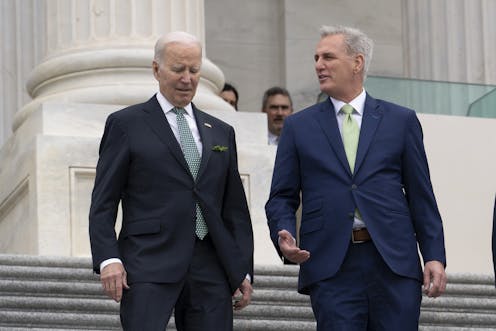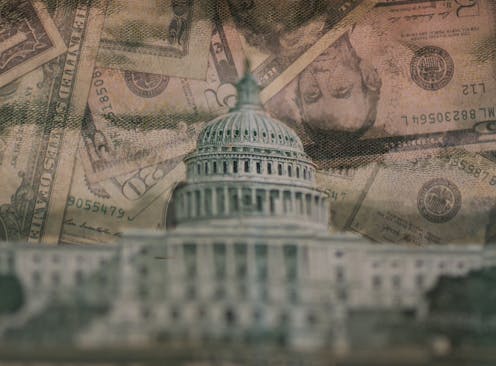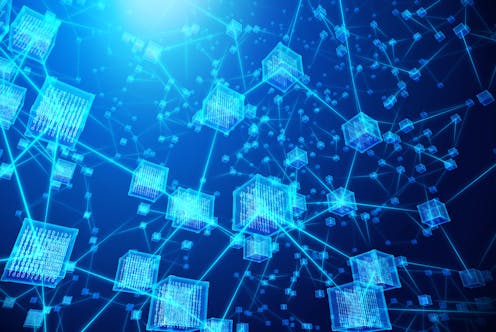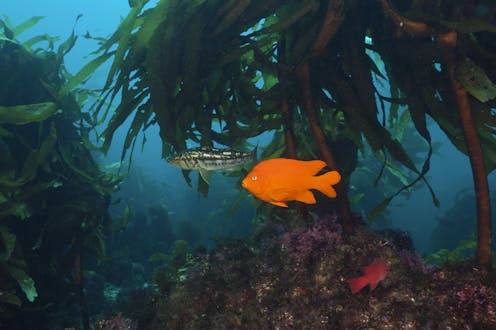Political compromises – like the debt-limit deal – have never been substitutes for lasting solutions
- Written by Maurizio Valsania, Professor of American History, Università di Torino
 Will the debt ceiling bill negotiated by President Joe Biden, left, and House Speaker Kevin McCarthy be a lasting solution?AP Photo/J. Scott Applewhite
Will the debt ceiling bill negotiated by President Joe Biden, left, and House Speaker Kevin McCarthy be a lasting solution?AP Photo/J. Scott ApplewhiteThe compromise to avoid default on the U.S. debt passed muster, eventually. President Joe Biden and Speaker of the House Kevin McCarthy pulled it off.
The nation can breathe, at least for the next...










